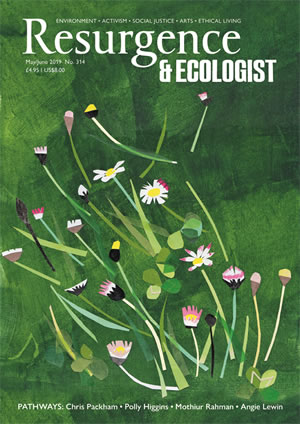While it is undoubtedly a useful framing device, there is something a little odd about environmentalists’ claim that, on the authority of a recent UN report, we have 12 years to stop climate change. It carries a suggestion that, when the clock hits zero, we reach a moment of final and total reckoning. What happens to the climate justice movement in 2030 if requisite action has not been taken? Do we concede defeat, shut up shop, and wait for the sky to cave in? I hope and suspect not.
In this essay collection, Jonathan Franzen goes as far as to call slogans akin to “12 years to stop climate change” a form of climate denialism. While denialism on the political right often takes the form of simply rejecting climate science, Franzen accuses the left of accepting the science but denying its implications. He believes that those of us who continue to insist that we still have time to make a meaningful political intervention are intellectually dishonest.
He writes: “Ten years ago, we were told that we had ten years to take the kind of drastic actions needed to prevent global temperatures from rising more than two degrees Celsius this century. Today we hear, from some of the very same activists, that we still have ten years.” Undoubtedly, portions of the environmental movement are indeed guilty of this slipperiness, where a hard deadline for action is perpetually impending but never reached. We will see what happens when the current 12-year countdown runs out in 2030.
However, Franzen’s position is undermined when he betrays the common but fallacious view that “climate change is everyone’s fault – in other words, no one’s.” In reality, emissions are not equally distributed, whether across history, geography, gender or class. As is now often cited, just 100 companies are responsible for over 70% of all emissions. Although its likelihood sometimes seems remote, it would be disingenuous to suggest that no meaningful political action can be taken to change this situation, even within the tight constraints of a 12-year time frame.
If all this sounds as if The End of the End of the Earth is a heavy dose of polemic, be warned (or assured) that it is not. Instead, this collection is primarily, and to a fault, a love letter to Franzen’s feathered friends. Thousands of words are given over to straightforward Nature writing without sparing us the early mornings, the drudgery and disappointment of bird watching from Africa to Antarctica, blended with strands of personal memoir.
Apportioning blame or prescribing action takes a second seat to a fatalist acceptance that the world is going to heat up drastically. Whatever action is taken from this moment onwards, Franzen is correct on this point, and to pretend otherwise is indeed a form of denialism. If he seems blithe about climate action, it is not because he dismisses the importance of the issue. He calls global warming “the issue of our time, perhaps the biggest issue in all of human history”. His beef is that he sees it as squeezing out conservation efforts in the immediate term, particularly when it comes to things that are killing birds right now, such as – wait for it – pet cats. A touch misanthropic, perhaps, but this is Jonathan Franzen.







